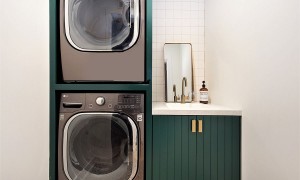Approximately 8% of adults grind their teeth during sleep. Not only can it damage your teeth, but it can also lead to facial pain, stiffness in the jaw, and headaches.
While there’s no cure, there are ways to relieve symptoms. For example, your dentist may recommend a mouth guard to protect your teeth at night.
Thinking of getting one? Want to learn more about the different types of night guards? Then look no further—we’ve compiled everything that you need to know in our guide below.
Keep reading to learn more!
- Stock Mouth Guards
Stock mouth guards can be purchased over the counter from a pharmacy or a department store. Made of rubber or polyvinyl acetate copolymer, they’re cost-effective (you can get one for under $40) and come ready to wear.
With that said, they do have their drawbacks. For one thing, there are usually limited size options, which makes them uncomfortable to wear.
And since they’re ready-made, there’s no way to alter their fit. For example, they might be excessively tight or excessively loose. On top of that, they tend to be bulky, which can make talking and breathing difficult.
For these reasons, they’re not usually recommended by dentists.
- Soft Night Guards
Soft night guards are typically made of ethylene vinyl acetate (EVA), a rubber-like polymer, which makes them softer and more flexible than those of other materials. They’re also less bulky and awkward to wear.
Compared to hard night guards, however, they tend to have shorter lifespans. They’re also not as effective (they don’t fit as snugly as those made of sturdier materials).
If anything, they’re only suitable for those with mild teeth grinding. In fact, they can actually make clenching and grinding worse if worn for extended periods of time.
- Hard Night Guards
A hard night guard, or occlusal guard, is usually made of hard acrylic; they’re typically used by those with severe clenching or grinding. Not only are they better at protecting your teeth, but they’re also more durable.
The rigid material, however, can make them uncomfortable to wear, especially at the beginning (it can take up to a few weeks for you to get used to wearing the guard).
They’re also more expensive, as they’re custom-made from impression molds. Depending on the material, they can cost anywhere from $300 to $800. The good news is that they’re usually covered (partially or fully) by insurance plans.
Different Types of Night Guards For Teeth Grinding
There are several types of night guards for bruxism, each of which has its own pros and cons. At the end of the day, it depends on various factors such as the severity of your symptoms. When in doubt, talk to your dentist!
Did you find this guide helpful? For more health-related articles, be sure to check out the rest of our health and beauty section!



























